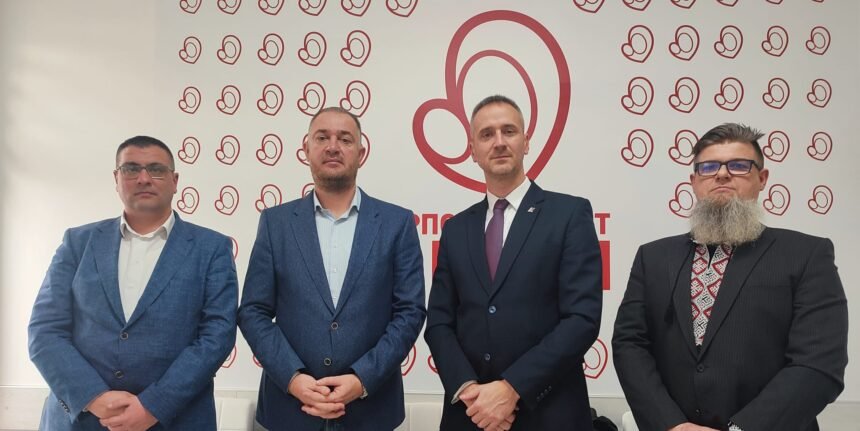A new report suggests that the renewed connection between Serbian and Slovak far-right groups is not based on genuine ideological solidarity but is an “instrumental cooperation” driven by a broader pro-Kremlin ecosystem of disinformation and influence. After nearly two decades of minimal contact, a series of political, media, and subcultural events in 2024 point to a synchronized effort to revive these ties for strategic purposes.
A Long Hiatus and a Sudden Revival
Cooperation between the Serbian and Slovak far-right was minimal for nearly two decades following a 2007 incident in Novi Sad, where Serbian police deported Slovak extremists planning to attend a rally. The Slovak far-right later shifted its focus from international networking to domestic politics under the leadership of Marian Kotleba, who formed the party People’s Party Our Slovakia (ĽSNS). While anti-Western narratives about Kosovo and the NATO bombing of Serbia remained, they were used to express general anti-Western sentiment rather than as a sign of genuine solidarity.
However, 2024 marked a notable revival of these connections through several channels:
- Political Alliance: The Slovak party Republika, a breakaway from Kotleba’s ĽSNS, and the Serbian party Zavetnici formally joined a pan-European nationalist coalition led by Germany’s AfD.
- Political and Media Engagement: Pavol Slota, a prominent figure from the Slovak party Domov – Národná strana, met with representatives of Serbian parties Dveri and the movement MI – Glas iz naroda. Slota subsequently appeared on Serbian pro-Kremlin media platforms like Helmcast and the YouTube channel X33, promoting anti-EU and anti-Western narratives.
- Cultural and Subcultural Unity: A music video was released featuring Slovak far-right musicians and Škabo from the Serbian group Beogradski sindikat. The song’s theme of Slavic unity and its anti-Western messaging were likely timed to coincide with the anniversary of the 1999 NATO bombing of Yugoslavia. On a subcultural level, a small Slovak group, Windenland, marched alongside the Serbian group Srpska divizija (Serbia Division) at a far-right event in Warsaw.
Moscow’s Geopolitical Strategy
The article argues that this sudden revival of visible cooperation is a geopolitical maneuver by Moscow, not an authentic grassroots movement. The Slovak parties involved, like Republika and Domov, are known for their strong pro-Kremlin policies and serve as key transmitters of pro-Russian narratives. Figures like Pavol Slota have also made frequent trips to Russia, suggesting ties to the Kremlin’s political and security structures.
According to the analysis, Moscow exploits historical traumas like the Kosovo issue and the 1999 NATO bombing to paint the West as aggressive and morally hypocritical. For the Slovak far-right, adopting these narratives is a way to gain relevance and visibility within a pro-Russian regional network, especially since they have lost significant political influence in recent years. This arrangement is purely instrumental and will likely only last as long as it aligns with the Kremlin’s interests.







